How Plagiarism Affects Your Personal Brand
Personal branding is now as essential an element of individual promotional strategy as social media presence when striving for achievements in the professional or artistically focused sphere in the modern world. If you are a content creator, an entrepreneur, an influencer, or any person from any field, your personal brand is your personal. It defines what you are, your beliefs, and the image that people have of you. In my opinion, one of the biggest risks which can prevent a person from creating a reliable and trustworthy personal brand is plagiarism.
This is plagiarism is not merely taking someone’s writings or ideas; it is also encompassing the act of passing a work or someone else’s ideas, talent as your own. While so many students and authors write their research papers and articles online and incorporate digital content ecosystems, it has become simple to plagiarize and at the same time it has become easier to detect plagiarism. Therefore, the individuals that plagiarize are set for severe consequences which impune their credibility, reputation and the future job prospects. This blog will discuss how plagiarism impacts your personal brand; reputation; and how one can work towards establishing a personal brand that is based on originality.
The Role of Creativity in Self Success
Unique selling proposition or the concept of distinct persona is the foundation of personal branding. If you are aiming to be different in your field, it is important that you create concepts, messages, and products that belong to you alone. Besides creativity, originality shows that the candidate has come up with a new idea and has something useful to contribute to the company.
1. Trust is one of the most important elements that any person or business can have with their audience.
Your interaction with the audience is based on trust. Your followers, clients, and customers follow you and/or buy from you for a reason – for your opinion or knowledge. If they realize that you have copied content or ideas, they will not trust you any more again. Such a situation is very unhelpful for your brand when you are in the process of building up the audience’s trust.
In contrast, originality assists in creating credibility and sets you as an expert in your area of specialty. Over time, your audience will associate you with providing them with new and interesting content, and they will turn to you for new and interesting information.
2. Standing Out from Competitors
In highly competitive industries, what makes you stand out is that you are able to come up with new content and ideas. While plagiarism makes you look like everyone else, copying retains much of the flavor of cheating. If you are always replicating or even mimicking others, and infusing your brand with your own creativity, then, your brand will be hard to distinguish from others. The creation of new material, including blog posts, social media posts, or video content, is what allows your personal brand to remain unique and grow.
3. Long-Term Success and Growth
While plagiarism might help you to create a lot of content in the short term, in the long term it hurts your brand. If left unchecked, plagiarism can have severe consequences because once a person’s reputation is tarnished it is very hard to fix. On the other hand, constantly providing fresh content will help you establish yourself in the industry, ensuring that your individual brand becomes relevant and profitable in the long term.
The Consequences of Plagiarism on the Reputation
Reputation is one of the best resources that you have when it comes to personal branding. The moment you lose your credibility, it becomes challenging to regain it back again. Copying can greatly harm your image, and this is not limited to your readers alone but can go a notch higher.
1. Public Scrutiny and Backlash
From the research the following have been identified as the effect of the use of the social media On the use of social media the following have been determined; This means that the audience can share their opinions immediately, and if they find out that you have copied content, they shall make it known also. This is something that will continue affecting your brand, and you can receive negative comments, lose your followers, and even be called for boycott.
2. Loss of Professional Relationship
Your personal brand is associated with work opportunities, including working with other people, including cooperation, sponsorship, and partnerships. If plagiarism is established, then such opportunities become much more difficult to obtain. People in the business world will not want to deal with a person whose integrity is being doubted.
3. Pervasive negative outcomes for reputation
Once you are tagged as a cheat, it may take ages before people are willing to trust you again. Your audience may never believe anything you do again and your previous work may be marred by the dishonesty. This is why reputation defends like authenticity and originality has to be taken to increase and uphold.
Staying Real on the Internet
In the age of social media, people are not only online but are also active, therefore, being genuine is essential to creating a brand. As it has been seen there are tons of content being created every day and it feels like one gets lost in the crowd. In order to achieve this, one has to produce material that is familiar and close to the reader’s heart. This authenticity is usually absent whenever issues to do with plagiarism are at hand.
1. Why Authenticity Matters
Self-identity is an essential component of authenticity, where a given person or group presents their real self and real values they have without impersonation whether in real life or virtual one. Whenever you generate your content, you are providing your audience with a sneak peek into your life and beliefs. It is this connection that the loyalist and the relationship with the followers is built.
On the other hand plagiarized content is normally generic and therefore cannot be associated with individuality. Even if it’s good, it doesn’t sound like you, and it doesn’t incorporate your view of the world. When you are creating something unique and authentic, it will be easier to share your message with your audience and make them trust your brand.
2. Creating Cohesion with Own Work
The message here is that consistency is the key to the successful establishment of an online presence. To be specific, the more often you create and share your original content, the more your audience understands that you are committed to delivering valuable information, and you can be relied upon to bring new ideas to the table. While using other people’s work, it may seem more convenient in the short term while in the long run it hampers your ability to remain consistent with your brand.
How to Guard Your Brand Against Plagiarism
Although it might appear as a lot of hustle to maintain originality here are some tools and ways through which you can guard your identity from plagiarism.
1. Plagiarism Detection Software
Nowadays there are numerous online services that can be used to compare the content of your work with other sources. Before writing, use Copyscape, Turnitin or Grammarly to check if the content does not look like another one that is already out in the electronic domain. These tools analyses massive databases of online contents to look for any possible problems.
2. Plagiarism Check Integrated Content Management Systems
Most of the current content management systems (CMS) include plagiarism check as part of its functionalities. For instance, WordPress and all other blogging systems allow users to have plugins and tools for checking plagiarism. Such systems help content creators protect their content from being copied by other people with ease.
3. Citation Tools
If you are borrowing someone’s ideas or research then it is appropriate to give credit to them. The library resources like Zotero, EndNote or even Google Scholar can be helpful in writing your paper and making sure that you use cites properly thus eliminating plagiarism.
FAQs
- What are the implications of plagiarism to my brand?
Plagiarism does harm to your reputation, hurts the trust of your readers and it can be very hard to regain the trust of your audience once lost.
- Can plagiarism be accidental?
Oh yes, plagiarism can occur unintentionally whether through negligence or lack of proper citation or failure to paraphrase. But it is necessary to prevent it and use special programs for plagiarism check.
- How can I avoid delivering content that has already been published?
To avoid this you can conduct your research in detail, come up with your idea generation and outcomes and use plagiarism detection software to help you go through your work before posting it.
- Why is authenticity necessary for your personal brand?
Honesty allows the audience to trust you and be loyal to your content since you are being real with them. It makes your audience understand that you are an honest person with the right convictions.
- What are the available methods of avoiding plagiarism in my content?
Today, there are appearance of plagiarism checkers such as Copyscape, Turnitin or Grammarly: all these three enable us to check copies copied whereas citation tools like Zotero makes sure we cite properly.
Conclusion:
Personal branding is a projection of your personality, ideas and the level of professionalism you possess. Not only does plagiarism damage your reputation but it also erodes the relationship you’ve established with your readers. In this way, you guarantee that the created product is unique and has a powerful and authoritative brand. The best strategy to avoid plagiarism is to use tools that will protect your brand and staying consistent with your content will assist you in building a good reputation and hence attaining career success in the long-run.

